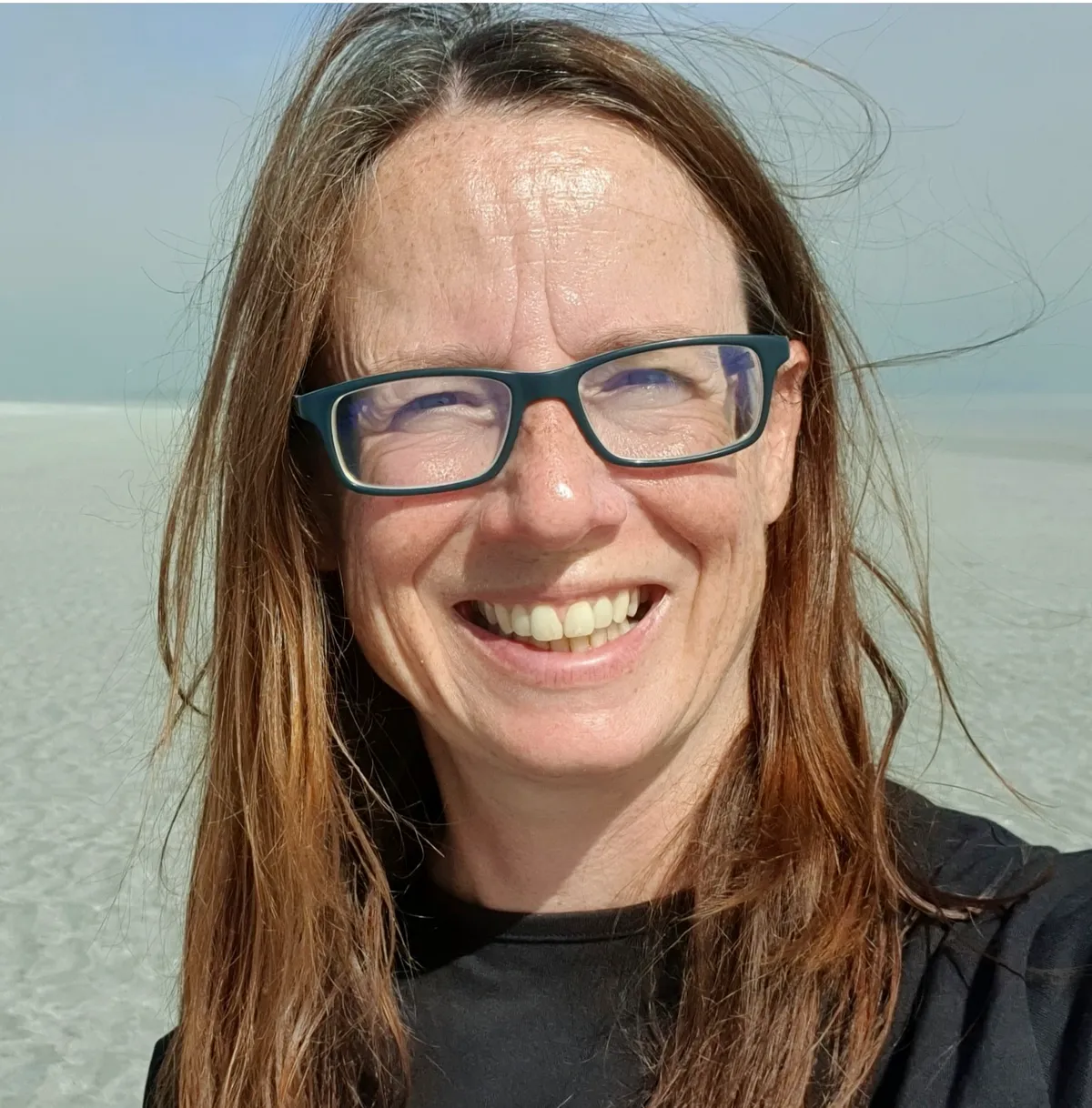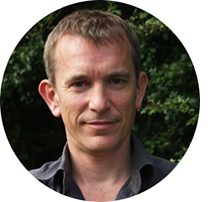Where do you feel close to nature? Tell us, we asked entrants to the 2022 BBC Countryfile Magazine New Nature Writer of the Year Competition.
One of the competition's most dramatic entries was the third or our brilliant runners-up: Vanessa Wright account of a storm on the island of South Uist in the Outer Hebrides. Brace yourself!
BBC Countryfile Magazine New Nature Writer of the Year 2022: runner up 3
Storm at Howmore
by Vanessa Wright
Celtic crosses stand on guard. Remains of four ancient chapels are scattered across these sacred grounds like the bones buried beneath. Beyond the austere white-washed church, the moorland glows in hues of eagles and deer. This is Howmore. During the twelfth century, this was the most religious and spiritual site on South Uist.
Preparing to brace the elements, I cling onto the car door as fierce Atlantic winds threaten to wrench it off its hinges. Ghostly whistles emanate from the direction of the graveyard, where lichen-splattered tombstones are Jackson Pollock paintings.
Taking the Hebridean Way, I march across the machair, marram grass whipping my legs. Snaking through sculpted sand dunes, I reach the sweeping beach, where a banquet is laid out for the wading birds. Curls of kelp are strewn over the shore: tagliatelle coils in caramel, coffee and chocolate.
The seaweed springs to life as tweed-dressed turnstones forage for morsels, while silver sanderlings scuttle to and fro in a mesmerising tidal dance. A fanfare of peeping oystercatchers greets me as they retreat from the incoming tide. Their piping calls are hushed to a whisper, drowned out by driving squalls.
Lonely ringed plover and rock pipits are dotted along the shore like tiny pebbles, as insignificant as I am on this twenty-mile coastline. Dodging the frothing surf, I spy grey seals periscoping out of the water, howling like lost souls at sea. Overhead, herring gulls snap their wings and sigh mournful cries as they scour the tideline for fresh carcasses.
Patrolling ravens kronk a warning that the weather is about to worsen. The sky turns corvid black, signalling it is time to turn back
Foaming white horses gallop on a storm-grey ocean, and thick white cloud envelops me. Hailstones pepper my skin, and for a moment, I have blizzard blindness. Patrolling ravens kronk a warning that the weather is about to worsen. The sky turns corvid black, signalling it is time to turn back.
The fury of the wailing wind screams in my face while the snarling sea spits and scowls. A thousand stallions pound their heavy hooves on my chest, kicking me back. They will not relent, but nor will I. Battling for breath, my heart races, and my pulse quickens. I am riding on the fringes of fear and fascination.
A shroud falls as the day fades, and I am cloaked in a grey haze. The gloaming is unearthly and unsettling. And I am infected with a creeping sense of foreboding. Shape-shifting silhouettes of two otters emerge from the waves, melting like mercury as they slink through the misty dusk back to their holt.
Reaching the mouth of the estuary, the melancholy calls of curlew are my cue to abandon the shore and return to the church. The gale is cyclonic now, swelling to a deafening crescendo as it funnels down the drover’s track. Trapped in the eye of the storm, it is as if I am on the brink. In a swirling vortex, the weather and my emotions are in sync. I am powerless and humbled by nature.
Opening the car door, an invisible hand snatches a bag like a tissue from a box of Kleenex. It sails over the telegraph wires, dissolving into the darkness. I slump onto the front seat, minus a few possessions, cocooned from the thrashing rain which buffets the car. Exhausted. Exhilarated. I have never felt more alive.
The Hebrides are islands on the edge. Between land and sea. Heaven and earth. At Howmore, with its wide skies and wild winds, is freedom. The untamed and undomesticated part of me lives here. Following in the footsteps of the pilgrims before me, in sun or storm, I find myself returning to this special place again and again.
Vanessa Wright
What the judges said...
Gillian Burke: "The writing charges along, mirroring the atmosphere and energy of the approaching storm. I really love how the colour, texture and movement of the environment are captured, like seaweeds that 'springs to life as tweed-dressed turnstones'. The twist at the end makes the whole experience very believable and real, like you’ve just been out on that windswept walk and grateful for the shelter of the car. A lovely piece."
– Gillian is a biologist, writer and presenter of BBC Springwatch
Nicola Chester: "Fantastically energetic writing on an island storm – from the 'tagliatelle' kelp, the ghostly whistle among the Jackson Pollock lichen-splatterd tombstones, to the galloping, pounding sea horses and growing unease. From the melting-like mercury glimpses of the otters, to the wind violently snatching your belongings, you took us along with you!"
– Nicola is the author of On Gallows Down, winner of the Richard Jefferies Award for the best nature writing published in 2021
Cal Flyn: "This piece was particularly notable for its strange and vivid imagery. I particularly liked the 'tagliatelle coils' of seaweed and the Jackson Pollock lichen. A sharp-eyed and powerful snapshot of place."
– Cal is a journalist and the author of Islands of Abandonment, shortlisted for the James Cropper Wainwright Prize 2021 for Nature Writing
Meet Vanessa Wright, one of three fab runners-up in the BBC Countryfile Magazine New Nature Writer of the Year competition 2022

Name: Vanessa Wright
Age: I’ve just turned 50
Based: St Albans in Hertfordshire
Work: After twenty years in corporate life, I gave it all up to pursue a dream: to write about nature. I am now studying for a Masters in Nature and Travel Writing at Bath Spa University.
How did you come to know the Hebrides, and how often do you visit? My first trip to the Outer Hebrides was fifteen years ago, and I have been visiting once or twice a year ever since. Now I am a student, I go up as often as I can – I love it up there.
What inspired you to write about nature? My Dad. Some of my earliest memories are sitting on the sofa with him watching David Attenborough documentaries. It was a window into another world, a far more exciting one than my living room in Croydon. After my Dad died unexpectedly four years ago, I resurrected that passion and spent more time in nature. And like many others, lockdown made me re-evaluate my priorities and was the catalyst to make a life change.
Would you like to do more nature writing? I would love to! My wishlist includes writing for mainstream magazines, and I am currently working on a couple of book proposals.
What would you like to explore in your nature writing? I would like to write imaginative stories from the perspective of a plant or animal and how they interact with humankind. A fun way to make serious points about our role in the natural world.
Apart from the Hebrides, what are your favourite places to enjoy nature and landscape? I love beachcombing the coastline for washed-up treasures, particularly after storms. When I am at home, much of my writing inspiration comes from places on my doorstep, particularly Batchwood and Heartwood, which lie on the outskirts of St Albans. Further afield, I worked in Melbourne for a year and spent a lot of time in ‘The Tan’ – the city’s botanical gardens.
Read more of our winning nature writing entries
Read our winning 2022 entry – a poignant tale of an idyllic Yorkshire childhood. Or try our two other runners-up, one recounting a startling encounter with wildlife on the edge of a city, the other a cycle ride to the Suffolk coast.
Or you can read the fantastic winner and runners-up from 2021.




